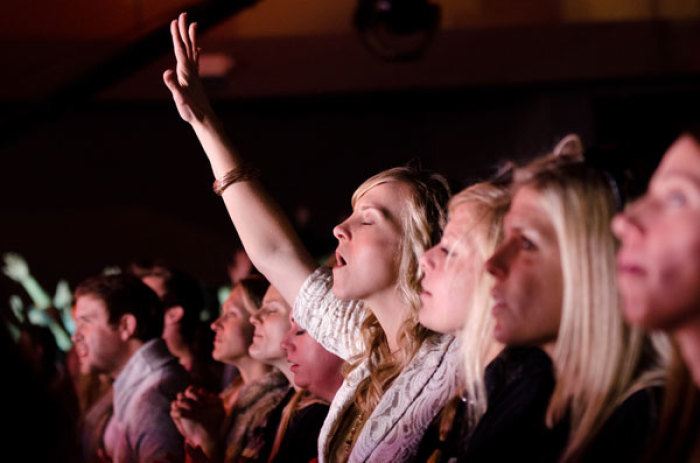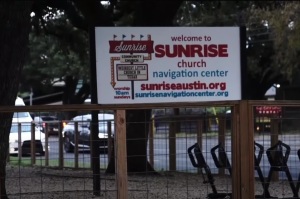Nearly all top-25 worship songs are tied to 5 megachurches in the past decade

Just about every worship song that hit the top-25 music charts from 2010 to 2020 were co-written or popularized by one of five megachurches, according to a recent study.
Worship Leader Research released a study titled "(Almost) 100% of the Top 25 Worship Songs are associated with just a handful of Megachurches," which analyzed where popular worship songs originated.
WLR research reveals that from 2010-2020, only 38 worship songs appeared on the Christian Copyright Licensing International and PraiseCharts top-25 lists. The CCLI lists, researchers said, are seen as the “Billboard charts of church music," while the PraiseCharts is "where churches might purchase chord charts and arrangements."
Of the 38, 37 were either written or popularized by one of five megachurches: Bethel Church, Hillsong, Elevation Church, Passion Church and North Point Community Church.
Of the 37 top-25 songs tied to megachurches, 13 are associated with Bethel, nine with Passion, nine with Hillsong, five with Elevation and one from North Point.
The lone song not written or popularized by the five megachurches was "Great Things" by Phil Wickham. However, the study noted that "Bethel Music's successful collaborations with Wickham preceded the song's release."
Shannon Baker, a postdoctoral fellow in music and digital humanities with Baylor University who assisted with the study's findings, told The Christian Post that the study sought to answer "who are the main players" in contemporary Christian music.
"And then the other part of our study was how is that landscape and environment being engaged by worship leaders," she said in an interview. "How are they interacting with these big artists and the songs that they're putting out? And then, how our worship leaders are engaging with the contemporary worship music?"
Marc Jolicoeur, the worship and creative arts pastor at Moncton Wesleyan Church in New Brunswick, Canada, and another WLR study author, told CP, "I guess we can say we were surprised at how unsurprising the results were."
"You often go into these kinds of projects with a thesis, a hypothesis that you want to test. And then, the goal is to not just try to reinforce that hypothesis. It's really to genuinely put it through the test to see whether or not the data stacks up to the theory," Jolicoeur said.
"A lot of people have this sense that there's a small number of large players as it were in this arena, in this field. But then to just see it so data-driven and just laid out in Excel spreadsheets, like 'oh, wow, there it is. It's really true.' So, that kind of was surprising for me."
The part that fascinated Baker the most about the results was the influence of a song being released as a single.
"The fact that by 2017, every song after that that was in the top-25 on our list were all released as singles," Baker said. "For me, I think it's just really interesting to see the way that the industry mechanics have influenced the way the most used songs find their way into the church."
Baker said there are reasons why the most popular songs heard in worship are written by just a handful of songwriters from a few megachurches, labeling Hillsong, Passion, Bethel and Elevation the "big four." She said megachurches are more established than artists who are not affiliated with them.
"You think about Hillsong and Passion. They've existed a lot longer. But I do think that the prominence of these artists, especially Hillsong and Passion, their longevity is due to the fact that people have grown to like those artists and therefore have developed the trust of the songs that they produce," Baker said.
"I do think that a lot of it is that these big four that we call them have developed this trust with their listener base. So that perpetuates when they release the new album or the new single, people are going to gravitate toward that because they've liked their songs in the past, so they're probably going to like their new songs."
Baker added that while Bethel and Elevation came "a little later onto the scene," they were immediately "able to develop that trust to quickly emerge into the songs that made it onto our list. So, I do think a lot of it is trusted sources."
The idea that artists, such as Chris Tomlin, have a trusted fan base has played a role in the trend, according to Baker, who pointed to Tomlin's ties to Passion during the 2010s.
"Eventually, he does leave. But while he was there, I think his connection added another level of trust to Passion as a whole because he was trusted both as a solo artist and with his work with Passion," she said.
Jolicoeur was concerned with the trend, telling CP that this could be bad news for aspiring Christian musicians and artists, as they might lack equal opportunity in the Christian music industry, calling it "a tough game."
"If you're looking for a living, it might not be necessarily the way to go," Jolicoeur said. "If, however, you're looking to just write good worship songs with ones that will serve your community from your heart, it turns out there will never be too many of them."
"There's always going to be room for what the Psalms asked us to do, which is to 'sing a new song.'"
Nicole Alcindor is a reporter for The Christian Post. She can be reached at: nicole.alcindor@christianpost.com.




























